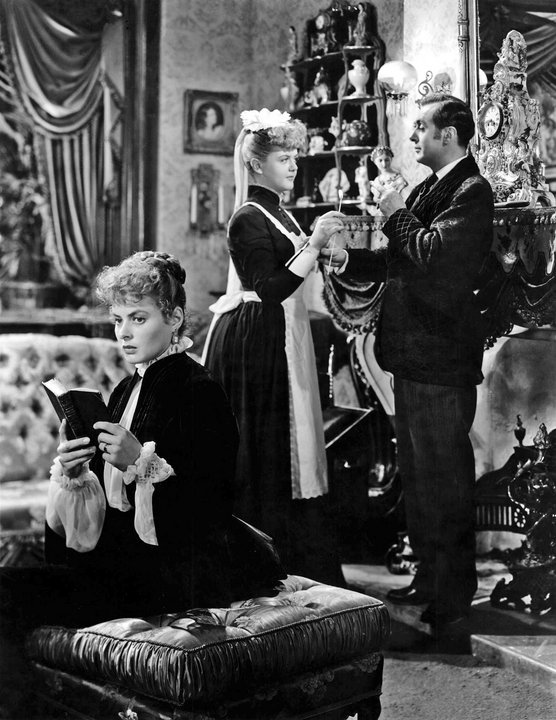In a recent post on Psychology Today, I paid tribute to Angela Lansbury as she inspired many of us over the years. People will remember Angela Lansbury for her many iconic roles, in Hollywood, on the Broadway stage and of course, as the smart and unassuming mystery writer on TV’s “Murder, She Wrote.” But few may remember that she also had a role in a film that has a lasting impact in both cinema and culture: “Gaslight”.
We can thank Angela Lansbury for bringing attention to gaslighting in our culture today.
How Exactly Did The Term “Gaslighting” Originate?
In the 1944 film, Gaslight, a coquettish Ms. Lansbury played Nancy Oliver, the housemaid who was witness to the diabolical Gregory, played by Charles Boyer, manipulating the psyche of his trusting and adoring young wife, played by Ingrid Bergman. Just as attentive and as observant as her later character in Murder She Wrote, Lansbury’s ‘Nancy’ captured the audience by conveying her distrust towards the ‘master’ of the house and his relationship with his trusting wife.
Similar to how we know gaslighting today, the movie centered around Gregory’s ability to manipulate his spouse by insisting she was losing her mind and memory. The term “gaslighting” got its name when he attempted to distort his wife’s perception of reality by tampering with the gas lamps around the house, trying to convince her that the “flickering” was all in her head and that she should just believe him.
Sound familiar? Reflecting back on this movie, I’m sure that the cast had no idea that this was going to turn into a verb and impact today’s culture the way it has. But, because of Angela, we can thank her for her role in the movie for bringing attention to gaslighting, or rather, the role of an accomplice in the dynamic of gaslighting
Gaslighting In The 1940’s Is The Same As It Is In The 2020s.
Now, gaslighting is everywhere. It’s in music, TV, movies, the media, and everyday vocabulary. There are literally shows and albums titled “Gaslight” or Gaslit.” Shows like Bad Vegan, Inventing Anna, Girl on the Train are just some of the gaslighting movies and series popular over the last few years.
Through the years I watched this movie many times and have always been fascinated by the woman, seemingly strong and self-possessed, giving up herself and her reality, over time, to the reality twists her husband was concocting. My life’s work has been dedicated to learning, researching, and understanding these dynamics, and I must admit, it’s not for the faint of heart.
I Can Thank Angela Lansbury For Inspiring Me To Write My Book, The Gaslight Effect
As a psychoanalyst in private practice, I have spent years of my clinical work bearing witness to the devastating and destructive power of gaslighting. In 2007, after years of interviews, research and practice, I published The Gaslight Effect, to detail the warning signs of gaslighting: what it looks like and sounds like, the stages people go through in descending into the soul-destroying relationship, and how to get out of it.
Additionally, I included content geared towards helping victims of gaslighting identify and name the phenomenon they were experiencing. As my colleagues and I often say about similar challenges, “you have to name it to tame it”. Naming the dynamic helped people suffering the gaslight effect to understand they weren’t crazy, or paranoid, or forgetful, but rather they fell into the trap of dancing the gaslight tango with a master manipulator – which often results in them losing themselves and their reality in the process.
The Good News Is That Gaslighting Is Becoming More Recognizable!
My work resonated with scores of people – and after a re-release in 2018 and a new book coming out in February 2023, it still does! People write to me over and over saying things such as:
- “OMG – that is what is going on!!!”
- “Dr. Stern, have you been living in my house and watching all the interactions??”
- “I thought it was me”…. Of course, because when women deal with tattered self esteem and a cloudy memory, they most often blame themselves. “I must be x and y and z!”
Looking back, I wonder if the movie and subsequently watching gaslighting unfold could have been an important building block of Murder She Wrote, where often people and things were not as they first appeared to be. And I wonder if Ms. Lansbury brought that sensitivity to the topic in her role in the Manchurian Candidate? Did she know something we didn’t? Or was this all a coincidence on her part?
However, Is The Term “Gaslighting” Being Used Correctly Today?
Either way, gaslighting has moved culturally from being important as a relationship dynamic to something in our political and social media spaces. And, the term today is often used to describe not just the kind of mind games that made Gaslight an enduring classic, but also discourse that challenges someone’s personal beliefs. “Stop gaslighting me” once was used defensively, and now it is used offensively to claim victimhood status.
As people hear the word “gaslighting” more and more in our culture, it’s important to clearly understand what the word really means.
We Can Thank Angela Lansbury For Giving Us The Name “Gaslighting”
Ms. Lansbury, thank you for a lifetime of gracing our screens — we will continue to honor you as we watch again and again your iconic characters. Whether you intended to or not, your work has helped many of us identify things that we normally wouldn’t have thought twice about. You inspired us to ask questions, challenge when we’re being challenged, and to follow our instincts.
RIP Angela Lansbury.





Leave a Reply